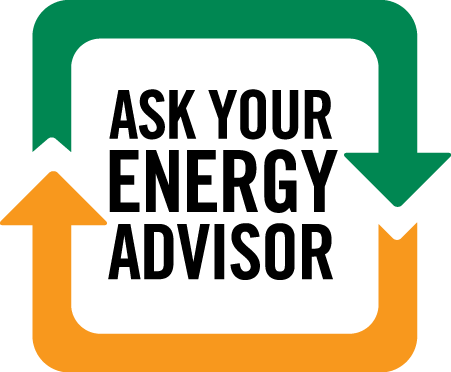Much of Ohio is facing winter storm watches and advisories this weekend. Our team is ready to spring into action when severe weather strikes – make sure you and your family is prepared too!
Please read through the information below to ensure that you know how to report outages, track restoration, and remain safe if power is lost in freezing temperatures.
View Ohio weather alerts here.
How to Report an Outage:
- Make a report on your Consolidated SmartHub account.
- Call our 24-hour outage hotline: 866-567-2753 (please call using the phone number linked to your account – our computer system will automatically register your outage)
- Sign up for outage texting to report outages via text message.
- Learn more about outage reporting.
Outage Tracking
- Sign up for Outage Alerts to receive text message updates about outages in your area.
- Use our outage map to see the impact of an outage across our territory and track our restoration progress.
Storm and Outage Safety:
- Never approach a downed powerline, even if it appears to be de-energized. Lines can become re-energized as restoration efforts progress. If you see a downed line, call us and 911 right away.
- During the restoration process, sometimes power comes back on in spikes that can damage electronics. Unplug all electronics and heat-producing appliances when an outage occurs.
- Always follow these generator safety tips, including:
- Never operate your generator inside your home or garage – even if doors and windows are open.
- Never plug your generator into a wall outlet to try and power your home – this can send electricity down de-energized lines, putting line workers in serious danger.
Follow this link for more safety reminders.
Important Outage Preparation Reminders:
- Do you have any medical equipment or treatments that require electricity or refrigeration? Make a plan with your doctor or pharmacist to ensure that you know how to stay safe when a power outage occurs.
- Maintain an emergency kit with necessary items like non-perishable food, water, flashlights, batteries, a first-aid kit, etc.
- Make sure you have blankets and warm clothing easily accessible.
- If you know a storm is coming, take time to charge important devices like phones, laptops, and portable batteries in case of an outage.
- Ensure that all of your sensitive electronics are protected from power surges. Remember that newer appliances often include computer elements and will need surge protection. Read this article to learn more about the importance of surge protectors and how to pick the surge protectors that best suit your needs.
- Remember to include your pets in your preparations!
What about rolling blackouts?
Ohio and many other states are at an elevated risk for rolling blackouts this winter. Even though our power supplier is well-equipped to meet the growing needs of Ohio cooperative members, we depend on the larger power grid to get that electricity to you. Learn more about rolling blackouts and their causes here.
If we are facing extreme cold or other factors that impact the electric grid in our region, there are some things we can all do to help avoid blackouts. The most important is to conserve energy – especially during times of high use. In winter, electric demand is the highest in the evening, when people are getting home from work, using appliances, and heating their home. You can make an impact by turning your thermostat down a few degrees, using major appliances during a warmer part of the day, unplugging unused electronics, and more.
We encourage you to check out our home energy calculator to see how you can make your home more efficient to save money and energy year-round.





